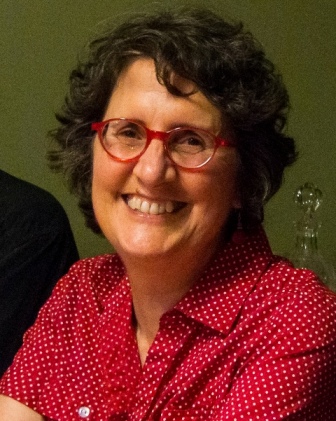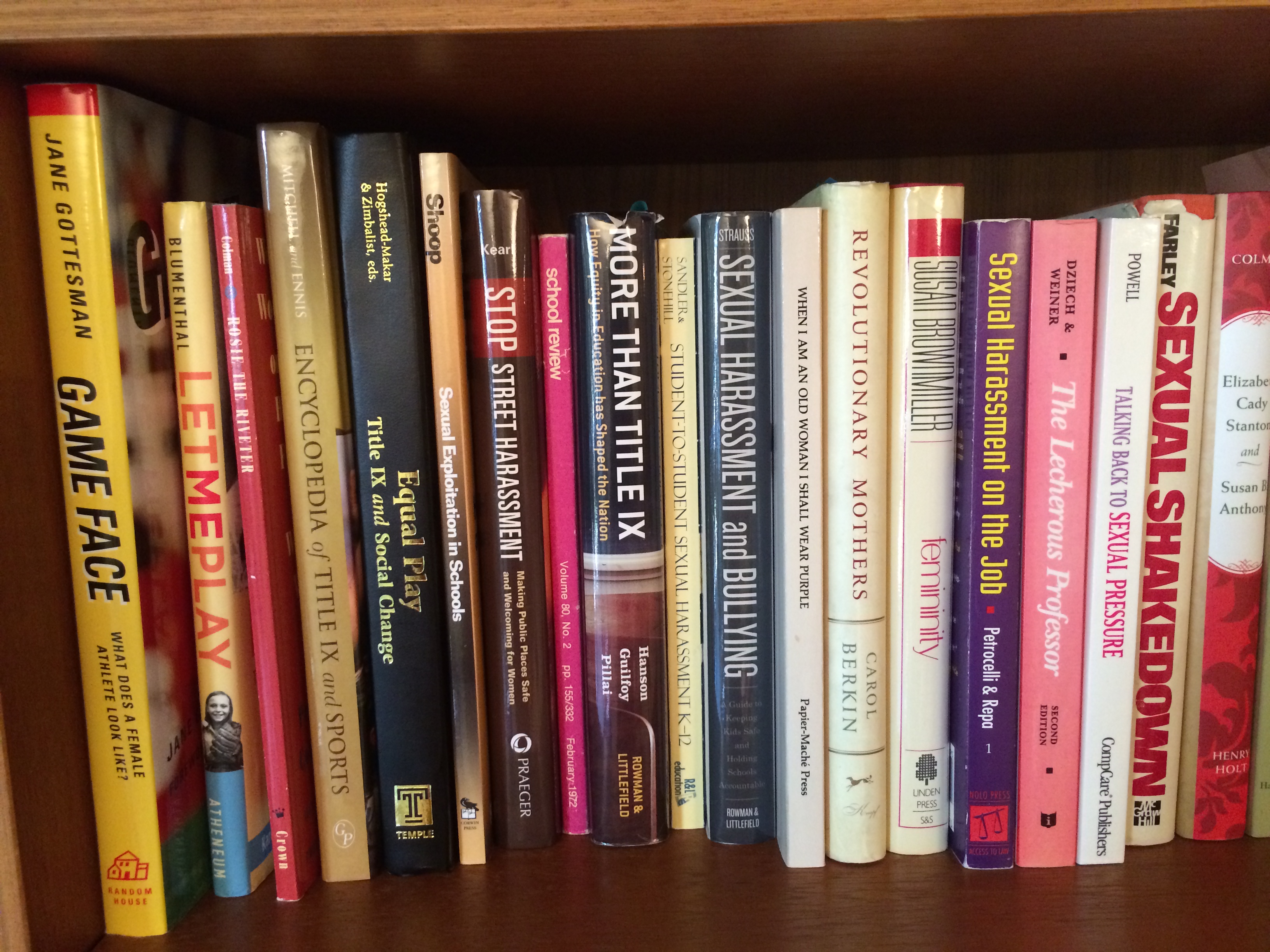Fomenting a feminist utopia can be fun
It’s one thing to change the course of history. It’s even rarer to know that’s what you’re doing, and perhaps rarer still to have fun doing it.

Alexandra Brodsky (left) and Rachel Kauder Nalebuff kick off the San Francisco launch of The Feminist Utopia Project.
While researching the people behind Title IX from its inception to today, I’ve vicariously enjoyed the camaraderie and sisterhood expressed along the way, from the “foremothers” of Title IX in the 1970s to the editors and contributors involved in the new book The Feminist Utopia Project (The Feminist Press 2015).
Feminists involved in the women’s movement in the 1960s and 1970s worked on many projects and goals, some of which succeeded and some of which ultimately did not (such as the Equal Rights Amendment). They didn’t know at the time exactly which changes would stick, but they knew that through their actions, they were shifting the status quo.
At times, they may have been a bit overconfident about that. Title IX expert and feminist activist Bernice Sandler remembers naively thinking that once Title IX was in place, sex discrimination in education was done. Poof! Problem solved. She soon realized that simply changing the law wasn’t enough. Our society and culture needed changing — a much larger and slower process.

Holly Knox (left to right), Deborah Ashford, Cheryl Fields, and Francelia Gleaves McKindra chat before the luncheon for Title IX foremothers in Washington, D.C., January 2015.
Simultaneously, though, the women’s liberation movement defied those cultural shackles. The 2015 documentary She’s Beautiful When She’s Angry shows the highs and lows of the movement, the dogmatic excesses and burnout alongside the fun and friendships formed in that heady time of rapid social change. A recent New York Times obituary for feminist historian Rosalyn Baxandall quotes her comments in a 1991 interview in which she complained that books about those years “…talk about all the politics and the splits, et cetera, but they don’t talk about the joy and fun we had,” adding, “We knew we were changing history, and it was terrific.”
When Title IX’s foremothers fought the good fight on a legal front, most of them were young. They worked hard and, for the most part, had fun doing it. The bonds they formed have stretched with time and distance yet pull them back together for occasional reunions such as the January 2015 luncheon at the National Woman’s Democratic Club. Activists, lawyers, and journalists from that era still stay in touch.
Today’s youthful vanguard in the continuing quest for feminist social and legal change includes women whose paths have crossed Title IX, of course. Alexandra Brodsky, a co-editor of The Feminist Utopia Project, and 15 other Yale University students filed a Title IX complaint in 2011 because of sexual assaults and harassment there, kindling the current firestorm over how colleges handle those issues. She went on to co-found Know Your IX, become an editor at Feministing, and enroll in Yale Law School.
 Brodsky and co-editor Rachel Kauder Nalebuff invited 57 contributors to imagine what work, art, sex, breakups, the Constitution, and much more might look like in a truly feminist society. Published as The Feminist Utopia Project, their fiction, non-fiction, poetry, and graphic responses show both how far we’ve come since the 1970s and how far we’ve yet to go. Many contributors are young, but they include established luminaries such as Melissa Harris-Perry and transgender leader Miss Major Griffin-Gracy, who is old enough to have participated in the Stonewall Riots of 1969. If some of the essays seem a bit naive — perhaps to be expected in utopian envisioning — they are surrounded by enough wisdom and experience (from contributors of all ages) that the whole moves the conversation about a feminist society decidedly forward.
Brodsky and co-editor Rachel Kauder Nalebuff invited 57 contributors to imagine what work, art, sex, breakups, the Constitution, and much more might look like in a truly feminist society. Published as The Feminist Utopia Project, their fiction, non-fiction, poetry, and graphic responses show both how far we’ve come since the 1970s and how far we’ve yet to go. Many contributors are young, but they include established luminaries such as Melissa Harris-Perry and transgender leader Miss Major Griffin-Gracy, who is old enough to have participated in the Stonewall Riots of 1969. If some of the essays seem a bit naive — perhaps to be expected in utopian envisioning — they are surrounded by enough wisdom and experience (from contributors of all ages) that the whole moves the conversation about a feminist society decidedly forward.
And they’re having fun doing it, if their book launch in San Francisco this month is any indication. Readings by Lori Adelman on erotic transcendence, Sheila Bapat on a feminist economy, Lauren Chief Elk on community-based responses to gender-based violence, Suzanne Bobadilla on her interview with Miss Major, and others drew a mostly young crowd. Do these young utopians think that they’re changing history? Will they? Time will tell, but in the long march toward equality, every step forward counts.






